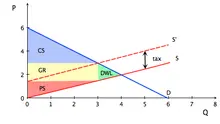Economics Terms A-Z
Scarcity and Choice
Read a summary or generate practice questions using the INOMICS AI tool
Where there is scarcity, choices must be made! Scarcity refers to the finite nature and availability of resources while choice refers to people’s decisions about sharing and using those resources. The problem of scarcity and choice lies at the very heart of economics, which is the study of how individuals and society choose to allocate scarce resources.
Some resources are plentiful while others are rare. We tend to think less about the air that we breathe than about how we are going to spend our time on any given day. That is because breathable air is in apparent abundance while the number of hours in a day is clearly limited. Our decision to breathe is not a conscious one and is thus somewhat uninteresting for an economist.
On the other hand, a whole branch of economics exists to understand and explain our choices of time allocation: how many hours we choose to work and how many hours we choose to play are of fundamental importance to the labor market. It is not just people’s time but also their skills that are in limited supply. Economists are typically concerned with the efficiency of any allocation: how can the most be made of such scarce resources?
While mainstream economics focuses on the preferences and decisions of individuals in society, evaluating the fair allocation of scarce resources requires aggregation of preferences in order to judge the utility of an allocation to society as a whole (see welfare economics). Thus, not only the efficiency of an allocation but also its equity, or distributive fairness, is relevant to the study of scarcity and choice. Indeed, the issue of equity is central to the debate on free-market versus planned economies.
The scarcity of a resource in a particular context can be quantified and hence judged objectively. Traditionally, economists have also studied people’s choices over scarce resources as though they were taken through simple, objective and rational calculation. Of course, people’s decision-making is not purely rational; it is affected by emotion too. The fast-developing subfield of behavioral economics applies insights from human psychology to enrich economists’ understanding of choice at a more subjective level.
Suggested Opportunities
- Master-Studiengang
- Posted 2 days ago
Master’s in Economics of Sustainability
Starts 1 Sep at Wageningen University & Research in Wageningen, Niederlande- Master-Studiengang
- Posted 4 days ago
Master of Science in Applied Economics
at University of Neuchâtel in Neuchâtel, Schweiz- Master-Studiengang
- Posted 5 days ago
Master's programme in Economics
Starts 31 Aug at University of St.Gallen in Sankt Gallen, Schweiz
The basics of supply and demand tell us that the price of a rare item will be higher than that of a common one. Marketing teams often apply the concepts of scarcity and choice along with ideas from psychology to make money. If marketers can create the impression that an item is in scarce supply, then some people will be willing to pay more for it, or to bring forward their purchases. Mind games about scarcity are played out through campaign statements such as “Buy it while it lasts!”, “Last chance to order!” or “Limited offer!” precisely in order to influence consumer choice.
Further reading
For an interesting discussion about the scarcity of a clear definition of economics and how economists have chosen to present their discipline over the years, see Backhouse and Medema's “Retrospectives: On the Definition of Economics” (Journal of Economic Perspectives, 2009).
Good to know
Perhaps the most important and pressing issue of our time, that of climate change, is essentially a problem of scarcity and choice. As the very air we breathe comes under threat and our rivers begin to run dry there has never been a greater urgency to consider economics in the search for practical solutions. The subfield of environmental economics deals with emissions targets and permits, carbon taxes, and subsidies for renewable sources of energy. It will surely be one of the most in-demand areas for economists to work in the years to come.
-
- Postdoc Job
- Posted 1 week ago
Research Assistant (Postdoctoral Fellow) (f/m/d)
At University of Bremen in Bremen, Deutschland
-
- Postdoc Job
- Posted 5 days ago
6-Year Postdoc with Option for a PermanentContract (f/m/d, 100%)
At ZEW – Leibniz-Zentrum für Europäische Wirtschaftsforschung GmbH Mannheim in Mannheim, Deutschland
-
- Researcher / Analyst Job
- Posted 1 day ago
Economic Analyst – Corporate Tax Modeller
At Joint Research Centre of the European Commission in Sevilla, Spanien














